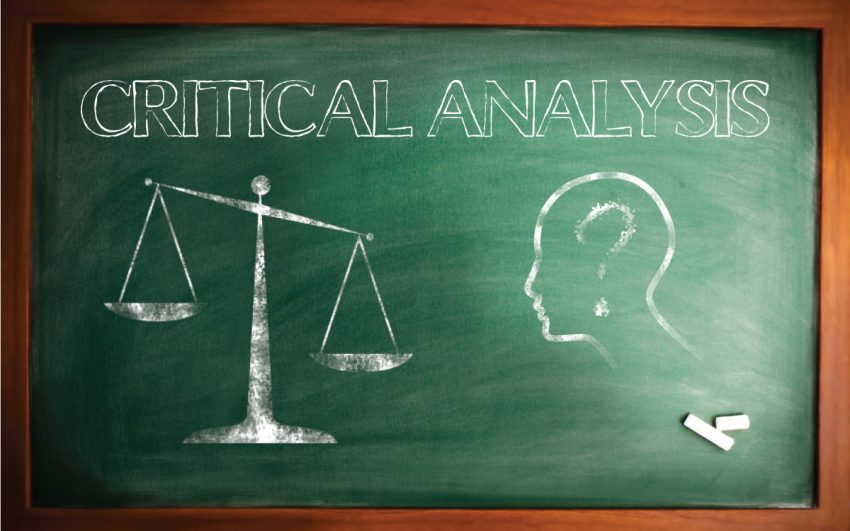Students are often given the assignment of writing a literary analysis because this kind of project encourages reflective thought on the process of writing a piece of literature such as a short story, poem, book, or drama.
When you are writing, it is important that you keep in mind that an author always has a purpose behind the decisions that they make in their work. You must call them out and make an effort to clarify these decisions, but at the same time, you must be able to examine a piece of literature based on your own point of view. We will try our best to achieve the quality assurance of professional learning. Stay tight because I’m going to go into more detail on how to create a literary analysis in this piece.
Definition
In the practise of critical study of literature analysis, one examines and, at times, evaluates a work of literature in addition to looking attentively at its component pieces to get an understanding of how those parts contribute to the whole. It focuses on how the author creates meaning via the use of a variety of literary devices, such as characters, storyline and structure, location, and many more. You need to keep in mind that the purpose of doing a literary analysis is not to race to the conclusion of the assigned essay; rather, it is to engage in a process that deepens your appreciation for the piece of art in its whole by increasing your comprehension of it.
How to Write an Analysis of a Literary Work?
First, give yourself a few moments to read the assignment over very carefully before you start writing. In most cases, your instructors will call your attention to certain facets of the material that demand your focus, such as particular characters, figurative language, and a topic of debate. Get out a pen and some paper while you’re reading a book so you can write quick annotations to help you process what you’re taking in. This will assist you in remembering anything that comes to mind as you are reading, which will save you from having to read the content again later. Create a list of the most essential events, places where the action takes place, characters, the antagonist, the protagonist, the topic, figurative language, and picture system using bullet points. In addition, you have the option of adding the page number to make it easier to locate your remarks.
Our top-rated instructors and authors are available for hiring.
Where do you even begin with a Literary Analysis?
Before you call it a day and call it done with this content, one more look over your notes is in order.
- Check that you have an understanding of the topic you are to write about. Sometimes, a teacher may ask you to do a broad kind of text analysis, and other times, they will ask you to perform a text analysis on a specific component of the text.
- Make a decision on the subjects that will be covered in the analysis that you will provide.
- Examine the story as a whole as well as the author’s writing style. When you examine a scientific essay, you might get insight into the writing style of the author.
- Talk about the environment. Find out the time and location of the occurrence, as well as the geographical location and any other particulars that are provided to the reader so that they may have a better grasp of the work.
- The writing style of the author is up for discussion. You may address the same demographic that the author did when he wrote the piece. It is going to be more dependable.
- Talk about the different characters in the work, including whether or not there is a main good guy and bad guy. Consider whether or not they are copying the characteristics of previous literary characters, how stereotypical they are, and how their relationships change as the story progresses.
- Choose a few themes, or come up with a solid thesis statement, to talk about. Make a selection of quotations to use in your discussion.
- Include opposing points of view. In this discussion, we will focus on the contentious parts of the work.
- Determine the connection that may be made between the art and the audience.
- Create a statement that may serve as your thesis. This sentence (or these phrases) highlight the primary concepts that you have been developing throughout the rest of your essay, and they address the question or questions that have been presented throughout your writing. Consider each of the following in order to compose an effective thesis:
- What exactly am I attempting to demonstrate here?
- What kind of a case am I making?
- How should I organise my facts and arguments?
- Outline of the Literary Analysis.
- Introduction:
- The hook, also known as the attention-getter. A remark, comment, or question that will pique the reader’s interest in the topic.
- Include the name of the author, as well as the title of the book or text that you are evaluating, as well as any other information that you believe to be relevant.
- Information necessary for context. Tell why the prompts are relevant or significant.
- Context. Here you need to write about how the essay question connects to the work of literature you are reading.
- Claim. This is the response to the enquiry that is posed in the paper that you are working on.
- Body Paragraphs (typically at least 2):
- Sentence Regarding the Topic Specify in each paragraph the evidence that supports your assertion that it is correct.
- You should back it up with a few or a few sentences from the text that you will give as proof later on.
- Include your own comments after each quotation, which should clarify how the material backs up your main point.
- A conclusion should be written at the end of each paragraph. This conclusion should restate your argument and explain how it relates to the thesis statement.
Conclusion:
Restate your argument using a variety of word choices. It is required to explain all of the primary assertions that you made in the earlier sections of your literary analysis, but it should also touch on the provisions that are implicit in your arguments.
Masterclass English College is a North Shore based English Tutor, they specialise in Year 5-6 critical study of literature, year 4-5 critical study of literature, and year 7-8 critical study of literature.

